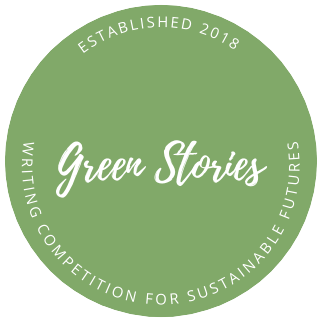‘Everyone thinks that it’s governments or banks who have the power, but it’s culture and writers and stories that affect how we think, who we want to be, what we aspire to.’
This is a quote from The Award Ceremony a story that captures the influence that fictional characters can have on our behaviour.
The role of scriptwriters in creating a culture of excessive consumption was also addressed by Denise Baden in her talk at BBC Television Centre at the Responsible Media Forum.
Research from the last green stories publication, Habitat Man, provides solid evidence that stories aimed at a mainstream audience with green solutions embedded can affect behaviour. Findings revealed that 98% of readers adopted at least one of the green solutions mentioned. These included practices such as wildlife gardening, composting, and even changing their will to specify a natural burial.

We hope to gather similar information from a survey aimed at readers of the anthology No More Fairy Tales: Stories to Save our Planet. This time, as well as asking if the stories changed readers’ behaviour, we are also interested to see if there were any effects on eco-anxiety. Our hope is that by tying issues directly to solutions, we can minimise eco-anxiety by increasing a sense of positive agency.
A current Green Stories project is using a play, ‘Murder in the Citizens’ Jury’ to engage people in climate policies.
Culture was also touched upon in the first story of our anthology Climate Gamers, as per the extract from the story below:
"DrGetRekt had amplified the impacts of switching to a Happy Planet Index by pouring money into artworks and culture so that each city had a giant construction showing performance on the index. Prizes were offered for the most engaging way of portraying the figures. Progress was reported in news programmes and school assemblies, harnessing the will of the people towards a common goal. The public had renamed DrGetRekt ‘the Culture Secretary’ as this simple policy had shot them into first place."